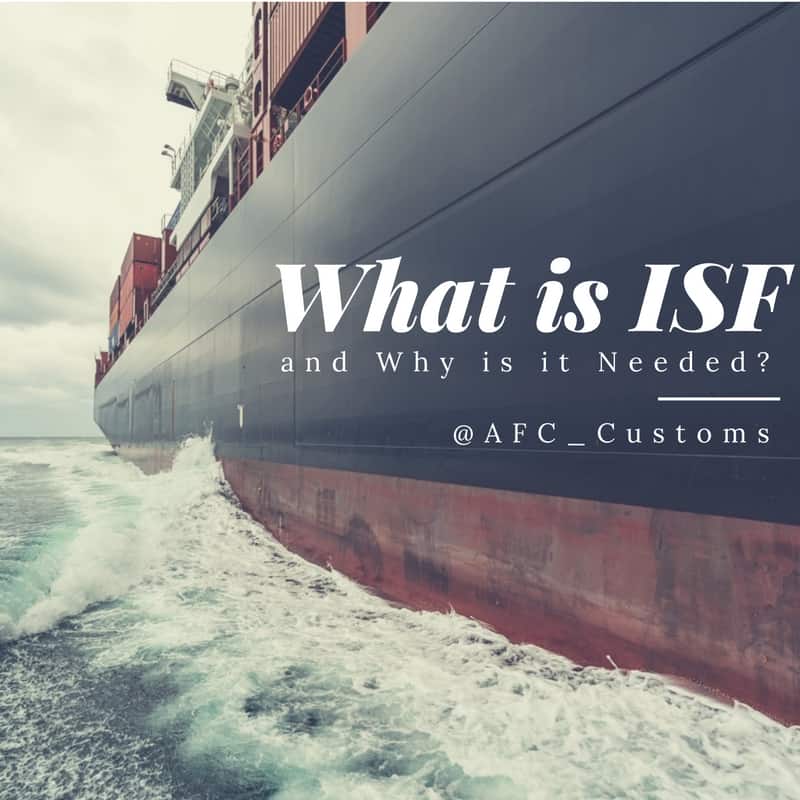ISF. Those three letters are so important to an importer. Short for Importer Security Filing, the ISF is a U.S. Customs and Border Protection (CBP) regulation that affects ocean shipments entering the United States. We have the information you need to ace ISF regulations.
What is ISF?

The ISF filing requires importers or their agents and vessels to file data electronically with CBP for in-bound ocean vessel import shipments. This allows CBP and the Department of Homeland Security to identify high-risk shipments to prevent smuggling and provide enhanced cargo security and safety.
Why is ISF Needed?
Safety. ISF gives the CBP a heads up when high-risk shipments are en route to ensure the safety of U.S. borders.
When is an ISF Needed?
The ISF filing only affects ocean vessel imports. It does not affect cargo imports entering the U.S. by other modes of transportation. The ISF also does not apply to bulk cargo.
Types of ISF
ISF requires submitting electronic digits of 10, two and five data elements, which are dependent on the type of shipment or party filing.
10 + 2 ISF: This filing is a set of 10 data elements needed to comply with regulations for goods being imported into the U.S. The first 10 data elements are the responsibility of the importer and must be filed 24 hours before cargo is laden aboard a ship ready for delivery to the U.S. The Vessel Operator handles the +2, which contains the vessel stow plan and container status messages. These elements are required 24 hours prior to the ship’s arrival at a U.S. port.
ISF 5: FROB, I.E. and T&E cargo requires only 5 data elements.
Basics of ISF Filing

Importers need to work efficiently and compliantly to get imports approved. Here are the basics you need to know about ISF filings:
- All ISF filings are done electronically
- Corrections must be made before goods dock at U.S. ports
- Only the party submitting the filing can make changes
ISF Changes You Need to Know
The ISF has changed a lot since its inception in 2009. There have been numerous updates and modifications over the years. Remember the following important updates:
- ISF’s “three strikes and you’re out” leniency method is over. ISF filings heading into “extra innings” will be fined now.
- Cargo may be detained for inspection. Citations given by the CBP for ISF infractions will result in fines.
ISF Filings Fail Proves Costly
If you fail to file or properly file your ISF filing, you’re going to have to pay if you receive a citation. ISF filing citations can cost $5,000 per violation and a maximum of $10,000 per shipment for every late or inaccurate filing.
File Other U.S. Customs Forms

Commodity import requirements and paperwork the CBP or other government agencies mandates can be handled by Licensed Customs Brokers. The following import paperwork should always be included:
- A commercial invoice that lists the purchase price, country of origin and tariff classification
- A packing list detailing your imports
- A bill of lading that lists goods in the form of a receipt
- An arrival notice from the U.S. agent
Hire a Customs Broker
Working with a Licensed Customs Broker is the best way to ensure your documents are filed correctly and ISF penalties are avoided. AFC International has experienced licensed customs brokers that can file your ISF and Customs entries with U.S. Customs officials.


Leave a Reply
You must be logged in to post a comment.